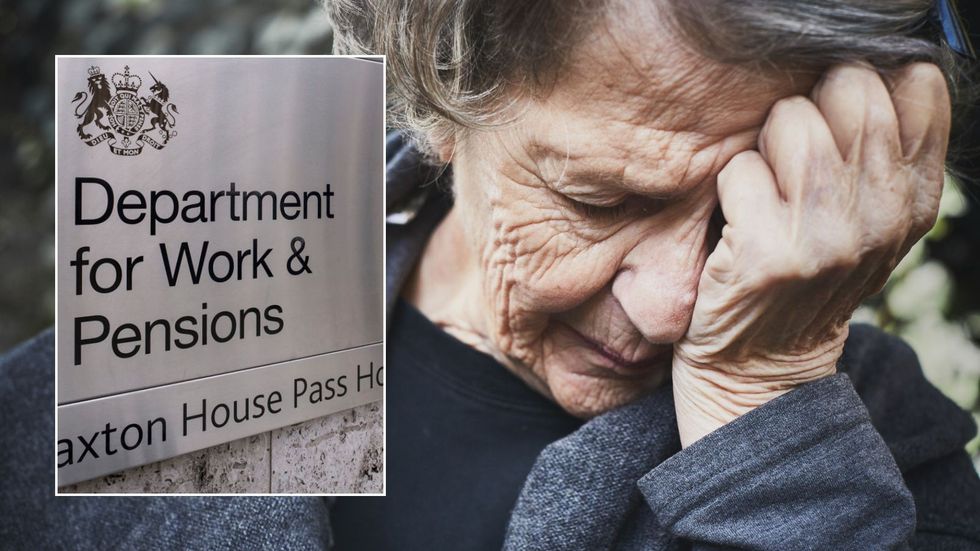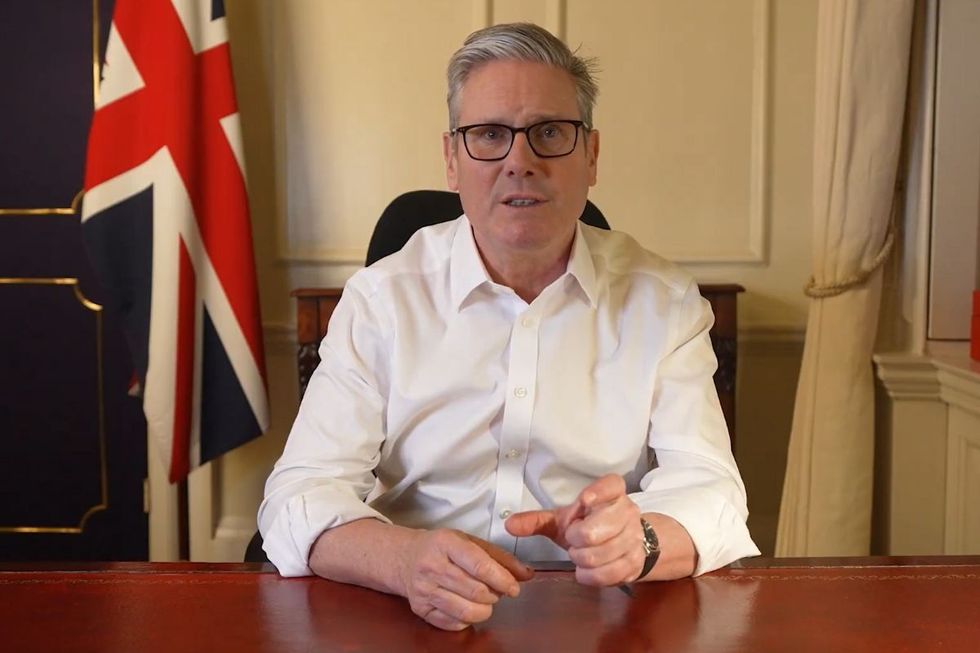DWP under fire as 'politically toxic' PIP overhaul to see disabled Britons 'miss out on much-needed support'

Labour perviously unveiled plans to restrict the qualifying criteria for PIP and other DWP benefits
Don't Miss
Most Read
Some 800,000 disability benefit claimants, with a legitimate claim, are in line to lose their support under the Labour Government's sweeping reform to the Department for Work and Pensions (DWP).
Recent research conducted by the New Economic Foundation (NEF) suggests the majority of claims for benefits, such as Personal Independence Payment (PIP), are genuine.
Prime Minister Keir Starmer's Government has introduced £5billion in PIP cuts to reduce Britain's welfare expenditure, however this has received significant backlash.
Spearheaded by DWP Minister Liz Kendall, these cuts are being carried out due to the benefit system supposedly being too lenient.

Some 800,000 genuine disability benefit claimants are due to lose their support
|GETTY
In a report explaining its reasoning behind the benefit cuts, the Government cited a 34 per cent increase in the number of disabled working-age people claiming incapacity or disability benefits between 2020 and 2024.
The DWP report stated: "It is therefore clear that the structure of the benefits system is also a factor contributing to the increase in claims for incapacity and disability benefits."
In defence of Labour's decision-making, Starmer slammed the current welfare state as "morally and economically indefensible" in part due to these figures.
Despite this, the NEF's findings found that the successful claims for PIP have continued to be steady at 50 per cent since the Covid-19 pandemic.
Do you have a money story you’d like to share? Get in touch by emailing money@gbnews.uk.
 Keir Starmer is under fire over his Government's policies | KEIR STARMER
Keir Starmer is under fire over his Government's policies | KEIR STARMERFurthermore, 46 per cent of disabled people currently receive PIP support, compared with 40 per cent before the pandemic's onset.
According to the think tank, this shows that the jump in claims is due to an increase in people applying for benefits they are already entitled to.
The NEF stated: "This suggests that the disability benefits bill has risen due to two factors: a rise in the number of disabled people eligible for state support, and a rise in deprivation.
"[This means] that disabled people previously not claiming support are now looking for additional financial help from the Government."
Among the changes being introduced by Labour, an individual who needs assistance washing below their waist, uses an aid to use the toilet or deal with incontinence, needs assistance dressing their lower body or needs an aid to to speak or hear would no longer be qualify for PIP.
Max Mosley, a senior economist at NEF, said: "Our analysis suggests that PIP is going to exactly the sort of people it is intended to support, but that higher rates of disability and financial hardship are driving more people to claim.
LATEST DEVELOPMENTS:
 The Government is under fire over its rumoured cut to disability benefits | GETTY
The Government is under fire over its rumoured cut to disability benefits | GETTY “The Government's plans to restrict access to PIP will lead to hundreds of thousands of disabled people missing out on support they very much need.
"This could well prove to be as politically toxic for the Government as cutting the Winter Fuel Payment."
A DWP spokesman said: "To be clear, there will be no immediate changes to Personal Independence Payment and the majority of people who are currently getting PIP will continue to receive it.
"As part of our Plan for Change, we’re creating a sustainable welfare system that genuinely supports people into work and out of poverty - backed by £1billion additional employment support funding to guarantee tailored help.
"Alongside this, we are supporting people into work with our Get Britain Working White Paper, and introducing the Fair Repayment Rate, which will increase financial security, tackle poverty, and boost living standards up and down the country."











